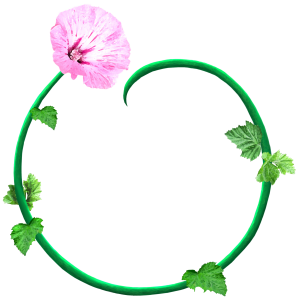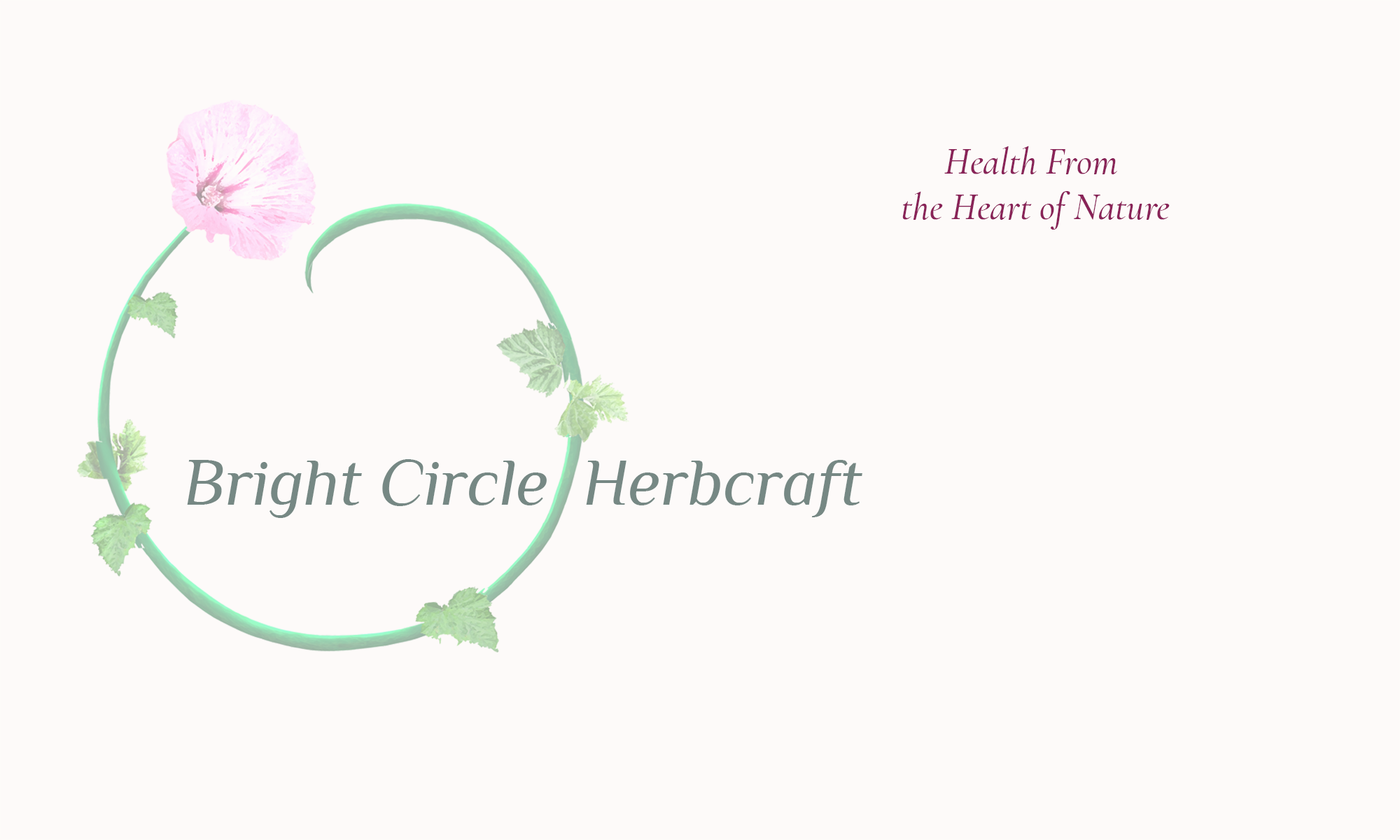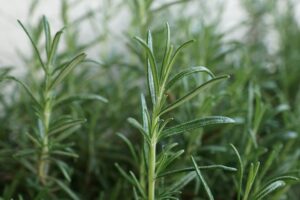
This is a tender time, as we confront loss of what once seemed stable. Loved ones, jobs, and a way of life once taken for granted all feel threatened by something so small it cannot be seen with an ordinary microscope. Yet outside, spring is unfolding in all her glory, reminding us that life is greater than our own changes, and will continue past this time that feels very big to us right now. It is worth remembering too, that the plants know how to navigate change, and we can learn a lot from them about resilience, by sitting with them, and observing how they react to their world. Just doing that eases stress and fosters resilience.
Finding Resilience
Resilience is said to be the ability of a system or a person to withstand and adapt to shock, sudden change or adversity. On a personal level it begins in the mind, heart and spirit. It comes from confronting life honestly, separating what we have control over from what we do not (I make a list on paper, for clarity); caring for the need of the moment and providing for the next need to follow, with whatever is at hand.
There is an opportunity in this time of transition, to consider what we might not want to resume as the new normal emerges, and what we want to co-create instead as we all adapt to this change. In making decisions as we adapt, our intuitive heart can help us be in our center as we quietly connect with it; and being in nature offers grounding and perspective. Herbal allies can nourish the heart and nervous system, as we adapt to changing circumstances. Many of these are soothing to spirit as well as body. A few of my favorites are…
Three mints and a rose:
Lemon Balm (Melissa officinalis).
It is a member of the mint family, that comes to us from southern Europe. Its name Melissa comes from the Greek for “bee”. (Bees love it!) Calming, Mildly 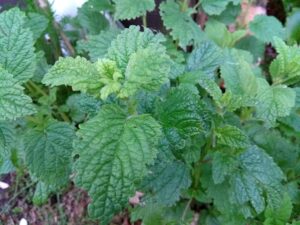 sedative and antidepressive — what’s not to love! It has been naturalized here for a long time, and is a favorite for its soft energy, strong presence, and delicate fragrance. Avicenna, a middle eastern herbalist who taught and practiced during the middle ages, recommended it to “make the heart merry”. It nourishes the nerves and has antiviral properties, making it a favorite in times of viral illness. Try a cup of relaxing lemon balm tea as you stop the clock to unwind; or snip fresh leaves into a salad for added flavor and an uplifting treat for your spirit.
sedative and antidepressive — what’s not to love! It has been naturalized here for a long time, and is a favorite for its soft energy, strong presence, and delicate fragrance. Avicenna, a middle eastern herbalist who taught and practiced during the middle ages, recommended it to “make the heart merry”. It nourishes the nerves and has antiviral properties, making it a favorite in times of viral illness. Try a cup of relaxing lemon balm tea as you stop the clock to unwind; or snip fresh leaves into a salad for added flavor and an uplifting treat for your spirit.
Rosemary (Salvia rosemarinus, formerly Rosmarinus officinalis).
This heady, aromatic mint is so easy to benefit from. Just breathe it’s uplifting scent for a boost to the emotions and nervous system! Or put it in your food for a little warming-bitter flavor to aid digestion, and lift your spirits as well. This is an herb I use often for those dealing with grief. If that is so for you, try sitting near a live Rosemary as you sort out what you are feeling, and bask for a little while in its unconditional acceptance. Rosemary is warming, so go easy in the summer if you’re a hot constitution, but it’s also a diaphoretic, and can cool you through sweating. This herb is considered a “blood mover”, so check with your care provider before using in medicinal amounts, if you are pregnant.
Skullcap (Scutellaria lateriflora).
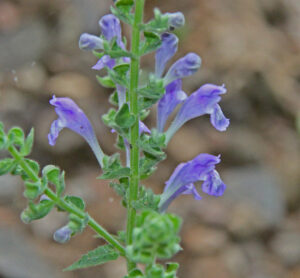 Another “magic mint”, nervine and relaxant. Skullcap is one of my frequent go-tos when stress keeps a person in a state of anxiety that they cannot come down from. Tincture or tea will work, though the tea actually seems stronger to me. The trick with skullcap for high stress times, is to use smaller amounts, but more often. This acts as a tonic restorative for the nervous system, fostering relaxation without heavy sedation, so it can be used in the day time. A tea, as under “To Imbibe” below (it’s bitter — honey is fine), or about 10 drops of tincture, three times a day for either, is a good place to start.
Another “magic mint”, nervine and relaxant. Skullcap is one of my frequent go-tos when stress keeps a person in a state of anxiety that they cannot come down from. Tincture or tea will work, though the tea actually seems stronger to me. The trick with skullcap for high stress times, is to use smaller amounts, but more often. This acts as a tonic restorative for the nervous system, fostering relaxation without heavy sedation, so it can be used in the day time. A tea, as under “To Imbibe” below (it’s bitter — honey is fine), or about 10 drops of tincture, three times a day for either, is a good place to start.
Hawthorn berry, leaf and flower (Crataegus spp.).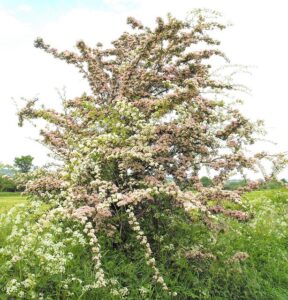
This tree in the rose family is often planted as a border in hedgerows, and guards the edges of roads or where forest meets prairie. Hawthorn is a lovely herb that both protects and heals the heart (verified through much scientific study!), is also antioxidant, and can lower blood pressure over time. It soothes the inner, or spiritual heart as well, making it easier to settle into your intuitive center. I use the powdered berries in an almond milk smoothie as a daily treat, and sip a tea of the leaf and flower before meditating, or connecting with the natural world.
To Imbibe
Unless you prefer taking in a tincture as I suggested for Skullcap, pour one cup boiling water over 1-3 teaspoons of dried Lemon Balm or Hawthorn — or only 1/2 to 1 teaspoon of Rosemary or Skullcap — in your favorite teapot. (Experiment with larger amounts for fresh herb). Steep for about 20 minutes, and sip. Rosemary and Skullcap are bitter, and that’s part of their medicine. If you drink them about 20 minutes before a meal, they will help your digestion as an added benefit. Adding honey is fine. Or… You can dilute them in smoothies if you’d like. If you are pregnant, avoid Rosemary except in in small amounts on food, unless your care provider says it’s okay.
Herbs can support you as you seek a state of ease, so you can sort out where you are going. Any or all of the herbs listed here are friends in times of change, and I leave you in good hands with them, as you go forward. Until next time, I wish you wonder as you sit in green spaces, drawing on your wisdom in the company of the plants.
If you would like to learn more about herbal lifestyles and reweaving your connections with earth rhythms, click here to visit Joan’s events page,
and be sure to sign up for her newsletter.
She will be adding virtual events soon,
and any delays or cancellations in previously scheduled events
will be noted as they occur.
You can follow her on facebook here.
